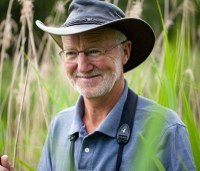个人简介
D.Phil. Oxford 1976.
1976-79. Demonstrator in Zoology, University of Oxford, and Junior Research Fellow of Wolfson College (1977-9).
Since 1979, Zoology Dept. Cambridge and Fellow of Pembroke College.
研究领域
My research is in Behavioural Ecology, the study of how behaviour evolves in response to selection pressures from ecology and the social environment. My past studies include: territory economics in pied wagtails; contest behaviour and mate searching in butterflies and toads; parent-offspring conflict and the transition to independence in young birds; sexual conflict and mating systems in dunnocks and alpine accentors.
My current work focusses on the interactions between cuckoos and their hosts, including: how cuckoos trick their hosts and how the hosts defend themselves against cuckoo parasitism; how cuckoo trickery and host defences co-evolve; how cuckoo chicks manipulate hosts when they beg for food; how hosts vary their costly defences in response to levels of parasitism, by both individual and social learning.
I encourage PhD students and post-docs to come up with their own ideas for research. Recent topics include: deceptive signalling by drongos; parental care in hornbills; cooperative breeding in Australian babblers; sexual selection in tooth-billed bowerbirds; cuckoo-host coevolution.
I discuss how I first became interested in research and describe some of my work in an interview with Jim Al-Khalili on 'The Life Scientific', broadcast on Radio 4.
近期论文
 查看导师最新文章
(温馨提示:请注意重名现象,建议点开原文通过作者单位确认)
查看导师最新文章
(温馨提示:请注意重名现象,建议点开原文通过作者单位确认)
Davies, Nick 2016. Games Animals Play. Darwin College Lectures 2016. https://sms.cam.ac.uk/collection/2155471
Thorogood, R. and Davies, N.B. 2016. Combining personal with social information facilitates host defences and explains why cuckoos should be secretive. Scientific Reports 6, 19872; doi: 10.1038/srep19872
Davies, Nick. 2015. Cuckoos and their victims: an evolutionary arms race. Croonian lecture of the Royal Society.
Davies, Nick. 2015. Cuckoo - Cheating by Nature. Bloomsbury.
Thorogood, R and Davies, N.B. 2013. Reed warbler hosts fine-tune their defenses to track three decades of cuckoo decline. Evolution, 67, 3545-3555. doi:10.1111/evo.12213.
Thorogood, R. & Davies, N.B. 2012. Cuckoos combat socially transmitted defences of reed warbler hosts with a plumage polymorphism. Science, 337, 578- 580.
Davies, N.B., Krebs, J.R. & West, S.A. 2012. An Introduction to Behavioural Ecology, Fourth edition. Wiley-Blackwell.
Davies, N.B. 2011. Cuckoo adaptations: trickery and tuning. J.Zool. 284, 1-14
Davies, N.B. & Welbergen, J.A. 2009 Social transmission of a host defense against cuckoo parasitism. Science 324, 1318-1320.
Welbergen, J.A. & Davies, N.B. 2009. Strategic variation in mobbing as a front line of defense against brood parasitism. Current Biology 19, 235-240.
Davies, N.B., Madden, J.R., Butchart, S.H.M. & Rutila, J. 2006. A host-race of the cuckoo Cuculus canorus with nestlings attuned to the parental alarm calls of the host species. Proceedings of the Royal Society, B: 273: 693-699.
Gibbs, H.L., Sorenson, M.D., Marchetti, K., Brooke, M. de L., Davies, N.B. & Nakamura, H. 2000. Genetic evidence for female host-specific races of the common cuckoo. Nature 407, 183-186
Davies, N.B. 2000. Cuckoos, Cowbirds and Other Cheats. pp.310. T. & A.D. Poyser.
Kilner, R.M., Noble, D.G. & Davies, N.B. 1999. Signals of need in parent-offspring communication and their exploitation by the common cuckoo. Nature, 397: 667-672.
Davies, N.B., Hatchwell, B.J., Robson, T. & Burke, T. 1992. Paternity and parental effort in dunnocks, Prunella modularis: how good are male chick-feeding rules? Animal Behaviour: 43, 729-745.
Davies, N.B. 1992. Dunnock Behaviour and Social Evolution. Oxford University Press.


